I love visiting central Oregon, specifically Redmond and Bend. These are youthful towns full of ski bums and creative people selling handcrafted, home-brewed goodies. There are cute boutiques where you can find prints of mountains, coffee shops with fresh pastries, outdoor adventure stores selling the latest bikes and, of course, breweries. I also love visiting friends my own age who work at the Redmond Airport, a rarity for someone who’s always palling around with gray-haired pilots. It is here where I met with Skylar Thody, the new owner of Pioneer Control Grips (PCG) and the first person I’ve interviewed who’s younger than me. He and his wife, Kelsey, bought PCG in 2021 and have been busy revamping their small business.
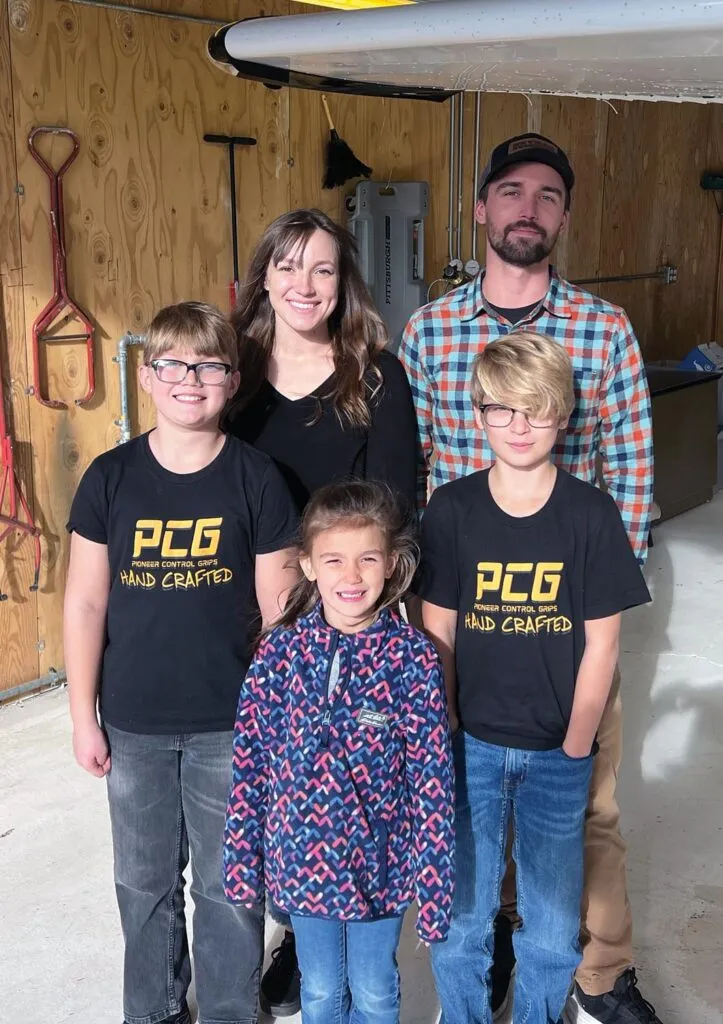
Skylar has always been a tinkerer. He grew up tearing apart old radios, guitars and amplifiers, the end goal being, “Can I successfully put these back together?” Usually no, sometimes yes. His room was a world of his own that his mom avoided for fear of stepping on tiny shrapnel of wire, wood and metal stuck to the carpet. Sounds more painful than the average kid’s Lego minefield! Here he challenged himself and stayed occupied as a kid. “Having a creative outlet has always been a necessity for me,” Skylar said. “Whether it was drawing a picture, building a clubhouse or writing a song, I’ve always felt incomplete without that outlet.”
Skylar and Kelsey had their first kid when Skylar was 15 and Kelsey was 16, forcing them to grow up sooner than most. Skylar dropped out of high school to start working and they got married when he turned 16. They felt there wasn’t much opportunity for them in their home state of Mississippi so they decided to sell the few belongings they had and move to Oregon where Skylar’s dad was living. Nobody really wants to rent to a teenager so they had to live in Skylar’s dad’s garage for six months until Skylar turned 18 and they were approved for an apartment. Skylar worked at a car lot for a year before landing a job as a composite technician at a Lancair builder-assist company in Redmond, Oregon. “The crew must’ve thought I was really good at sanding the bellies of airplanes because I did a lot of that,” he joked.
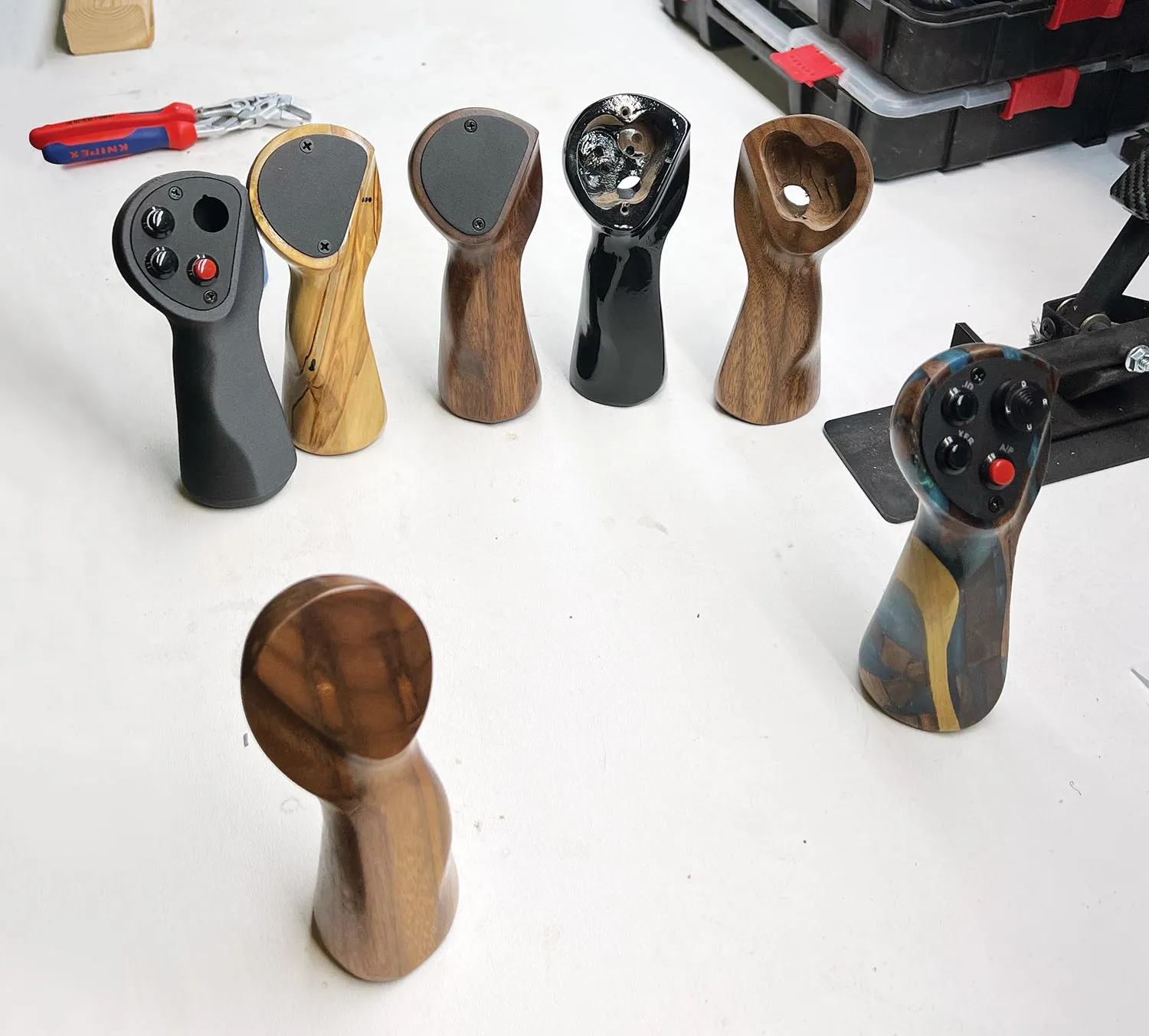
After a year of hard work and a newfound allergy to epoxy, Skylar realized his body needed a break so he decided to explore flying as a profession. He didn’t think the airline route was right for him, but saw a lot of aerial applicators (crop dusters, as the old guys would say) while living in Mississippi and thought that looked like fun. He found a school in Louisiana that specialized in ag training, so he and his family once again sold everything they had, bought a travel trailer and headed south. Two weeks into his training the school announced they were going belly up.
“Being a smart 21-year-old, we had financed the schooling and paid for everything up front,” Skylar said. “They took it all and disappeared. Thankfully, my instructor took the liberty to stay behind and was able to get me through to my private pilot check ride, which I somehow passed after only four weeks of training.”
Skylar earned his private pilot certificate in June of 2017. They moved back to Oregon and Skylar resumed his aviation career at the Lancair builder-assist company, only this time he was in the avionics department. He began selling used avionics for them on the side in exchange for flight time in the company Cessna 150. People caught wind of Skylar’s successful avionics sales and started reaching out to him directly. He decided to leave the Lancair gig and start his own business, Skyman Avionics, an avionics resale company that proved to be a stepping stone to more opportunity. “If we wouldn’t have started Skyman, we wouldn’t have had the ability to purchase the equipment to start Pioneer,” Kelsey said.
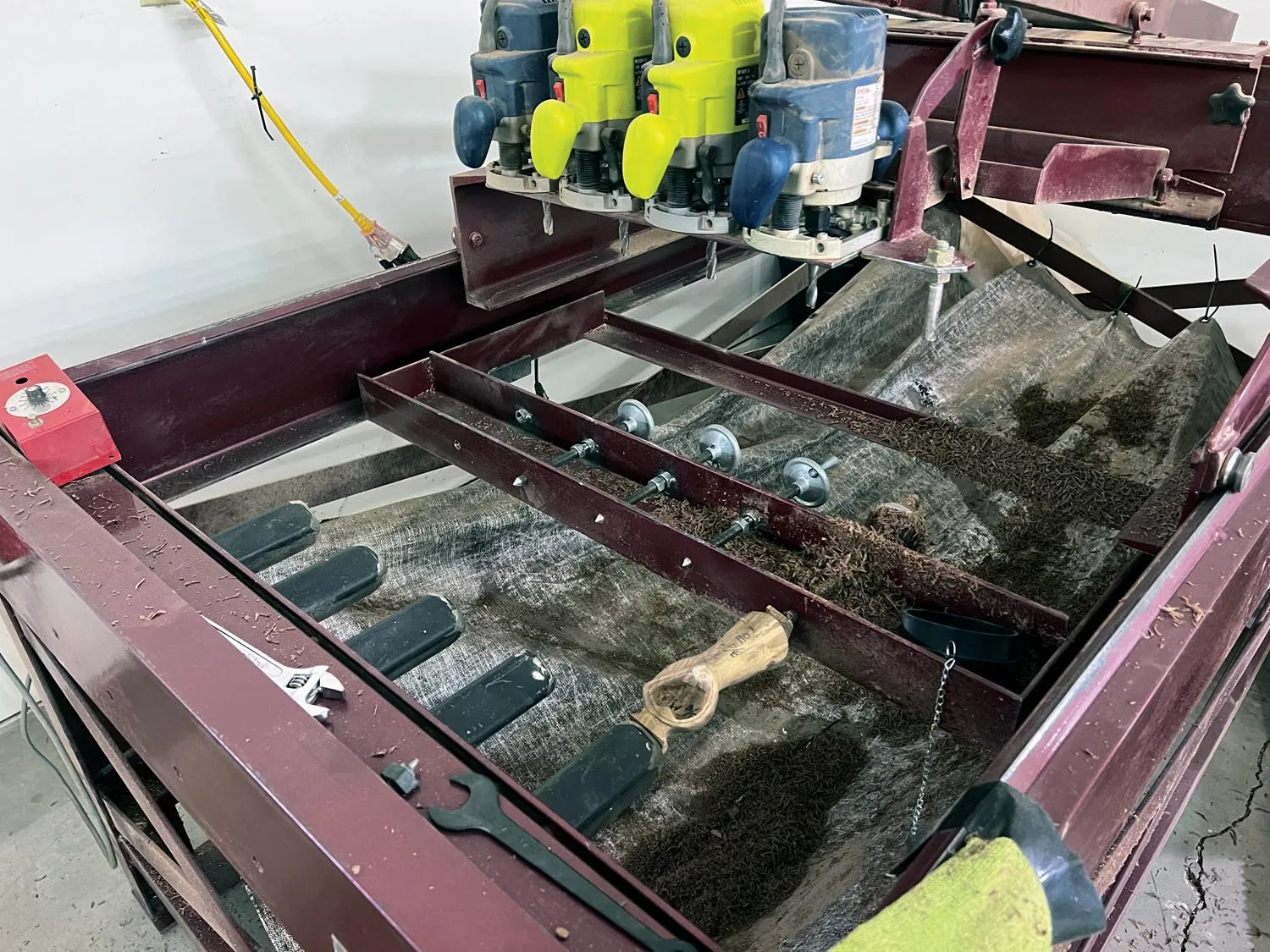
Coming To Grips
They started Skyman in March of 2021 and acquired PCG a few months later, in August. PCG’s previous owner, Guy George, would deliver control grips to the shop Skylar worked at, which is how Skylar first heard about PCG. “The company that I worked for used the grips in their production aircraft and would order them from the other local company, unfinished. They would paint them in-house then bring them to the avionics department for assembling the switch plates,” Skylar said. “Avionics was right up my alley but was pretty monotonous, so anytime we would get a set of the grips in, I jumped on the opportunity to assemble them. I remember telling my coworker how fun it would be to build these.”
Guy had sold the business to another local aviation company that didn’t end up doing much with it. When the opportunity to buy PCG resurfaced Skylar and Kelsey jumped on it. Guy was nice enough to spend a day with them and run through the entire process, which Skylar filmed to reference later. For the first few months Skylar called Guy with questions on almost every order. Thankfully Guy was willing to help and excited to see them take on his legacy.
“Having met him a few times before, I was always impressed by his charm,” Skylar said. “He was this older man who would drive up in his light blue Model A, step out of the car dressed sharp from head to toe with a feather in his cap and hand deliver these handcrafted pieces of art. Goals, for sure.”
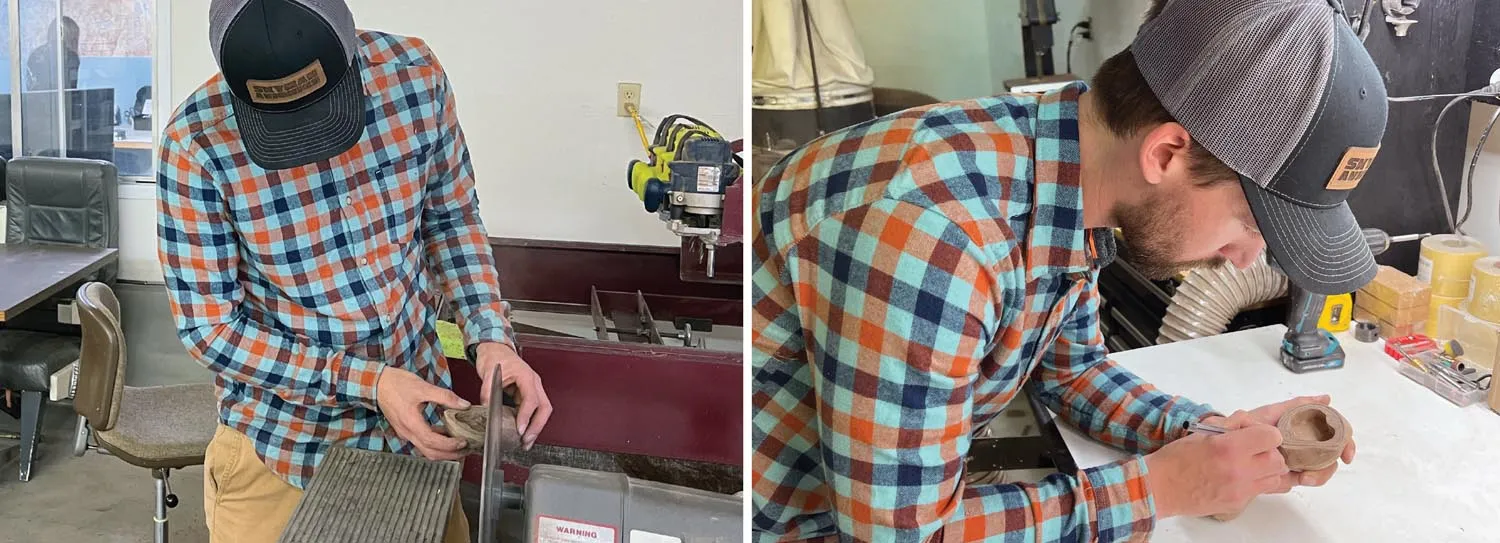
Building Them Better
Once Skylar got the hang of it, he realized the current process wasn’t going to work for higher production rates. He admitted he’s a fairly impatient person and assumed his customers might be as well. He didn’t want to keep them waiting for a set of stick grips that other companies could ship the same day so he started brainstorming ways to shorten the time between order and delivery. The main issue had to do with the way the tooling was designed. The grips had to be custom drilled to whichever size control stick the customer ordered. Then a metal collar with the set screw was permanently bonded in place. He thought that if this problem went away it would significantly cut down on delivery time.
“I came up with the idea for the insert. The insert is 3D printed from carbon fiber-infused nylon so it’s super lightweight but also very durable,” Skylar said. “Now, all of the grips can be drilled to the largest size that we offer and then fully finished and waiting on an order. When someone orders a grip, all we need to do is throw in an appropriately sized insert and ship it out. Problem solved.”
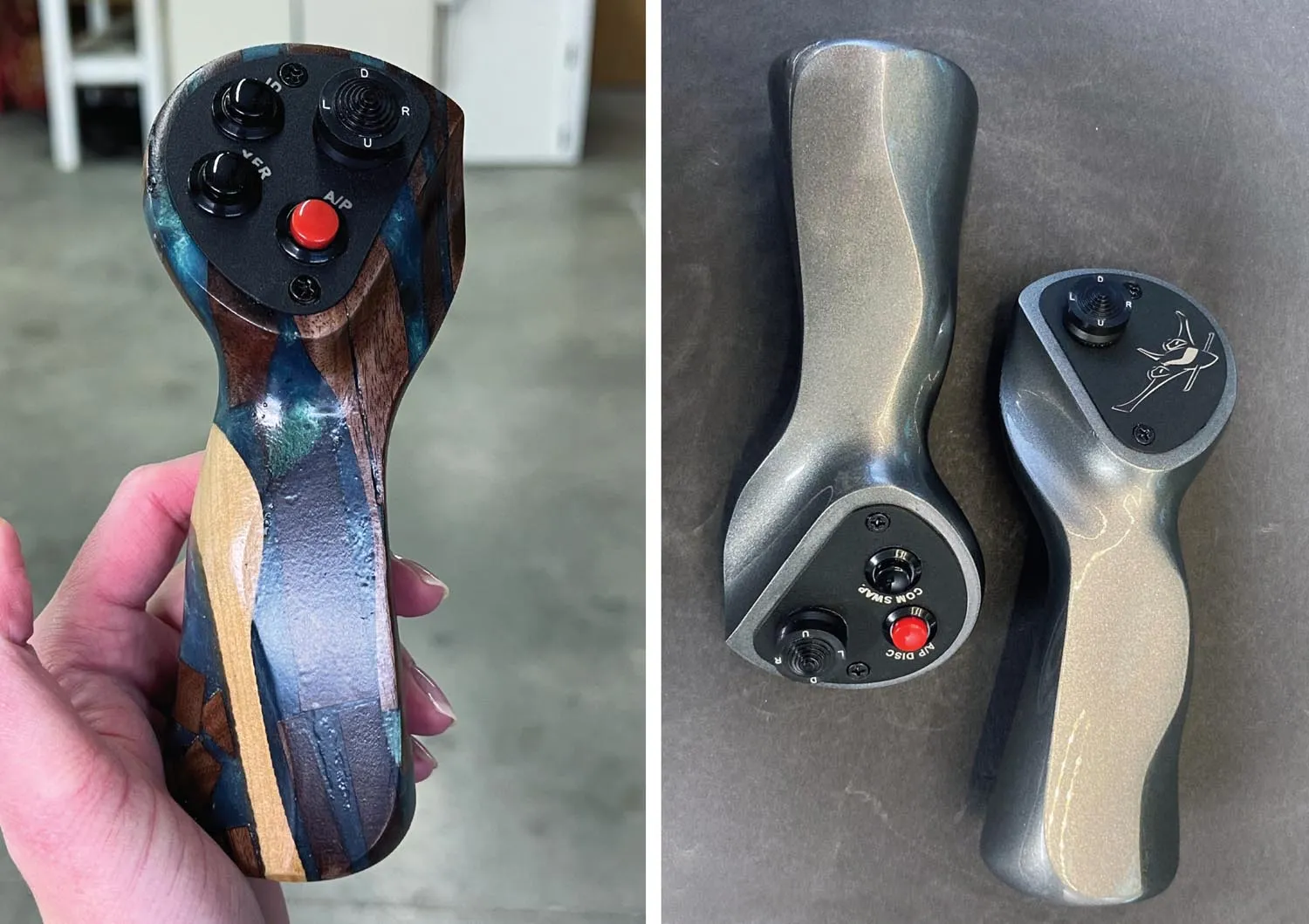
Skylar liked the look of the carbon-infused nylon, which didn’t have the typical toy-like appearance he’d learned to expect from 3D printed parts. He’d received complaints about the price of their handcrafted wood grips, so he started researching to see if he could make 3D-printed grips at a cheaper price point. He researched Lidar scanners, but quickly realized he didn’t have the necessary skills to reverse engineer the complex shape of the grips. He asked around for a while with no luck before meeting a guy at KidVenture who was showcasing 3D printing to a group of kids. Skylar approached him and the man said he’d be happy to help. Skylar shipped him a grip and a few weeks later the prototype was ready.
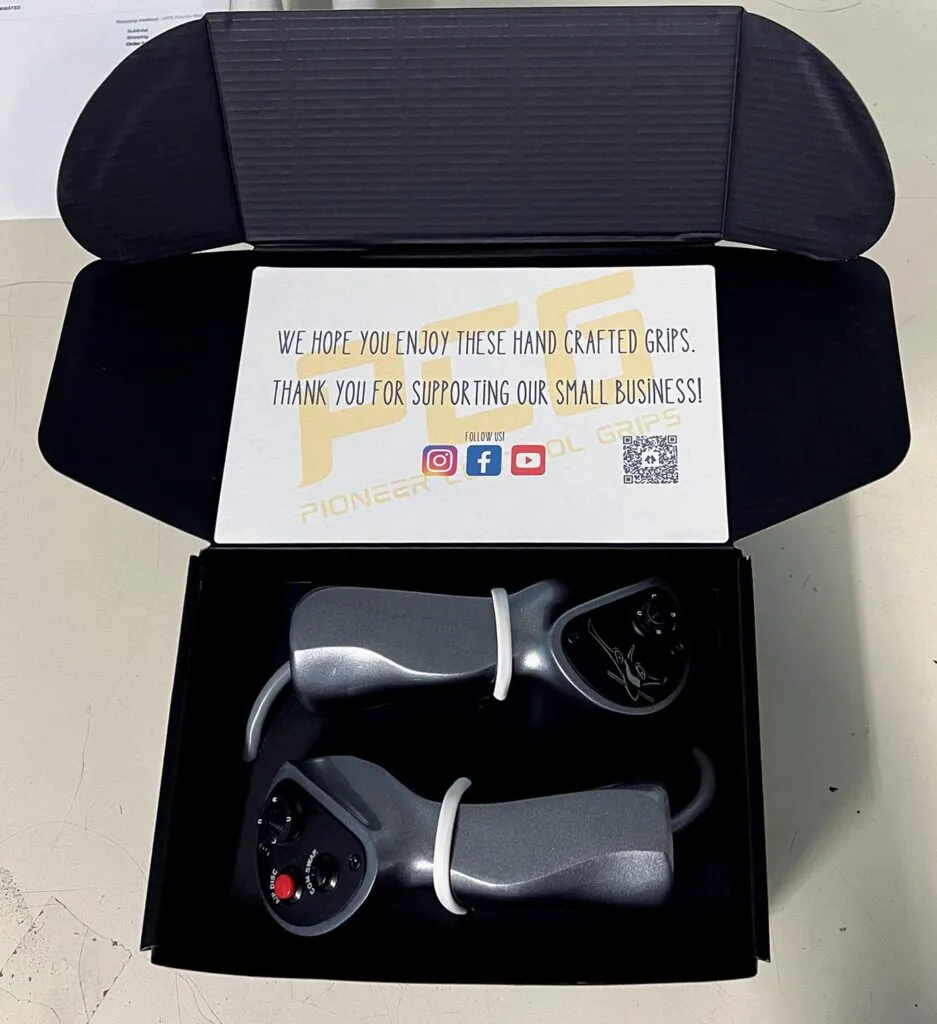
“We made a few tweaks and improvements, then I reprinted it out of carbon-infused nylon and knew we’d just solved a huge problem,” Skylar said. “We were able to pretty much cut the price of the grip in half. I’ve got ideas on how to get that down even more but it will require extensive testing and I want to be sure it’s done right.”
Skylar and Kelsey hope to make PCG a staple in the Experimental community. One of the advantages of being a small business is that they can meet the individual needs of their customers. They’re open to honest feedback and have been able to make changes as needed. If someone wants a set of grips that perfectly matches their airplane’s interior, PCG can make it happen.
“We recently had a customer who loved our grips but wanted a set that fit his hands a little better,” Skylar said. “We were able to custom build him a set that perfectly fit his hands. It feels great to be able to do things like that and ensure that every customer gets exactly what they want.”
PCG offers four different grip options: the Pioneer Classic, Pioneer Lite, Pioneer Custom and Pioneer Junior. The Classic is Guy’s original design, which includes a four-way trim, three push buttons and a push-to-talk button. The Pioneer Lite is the 3D- printed version of the Classic with the same switch layout. The Custom allows you to personalize your grip’s wood, finish and switches, as well as add personalized engraving. Lastly, the Junior is the most affordable option, which is just a wood stick grip with a push-to-talk button, a great option to save a bit of money on the copilot’s seat or for Light Sport Aircraft.
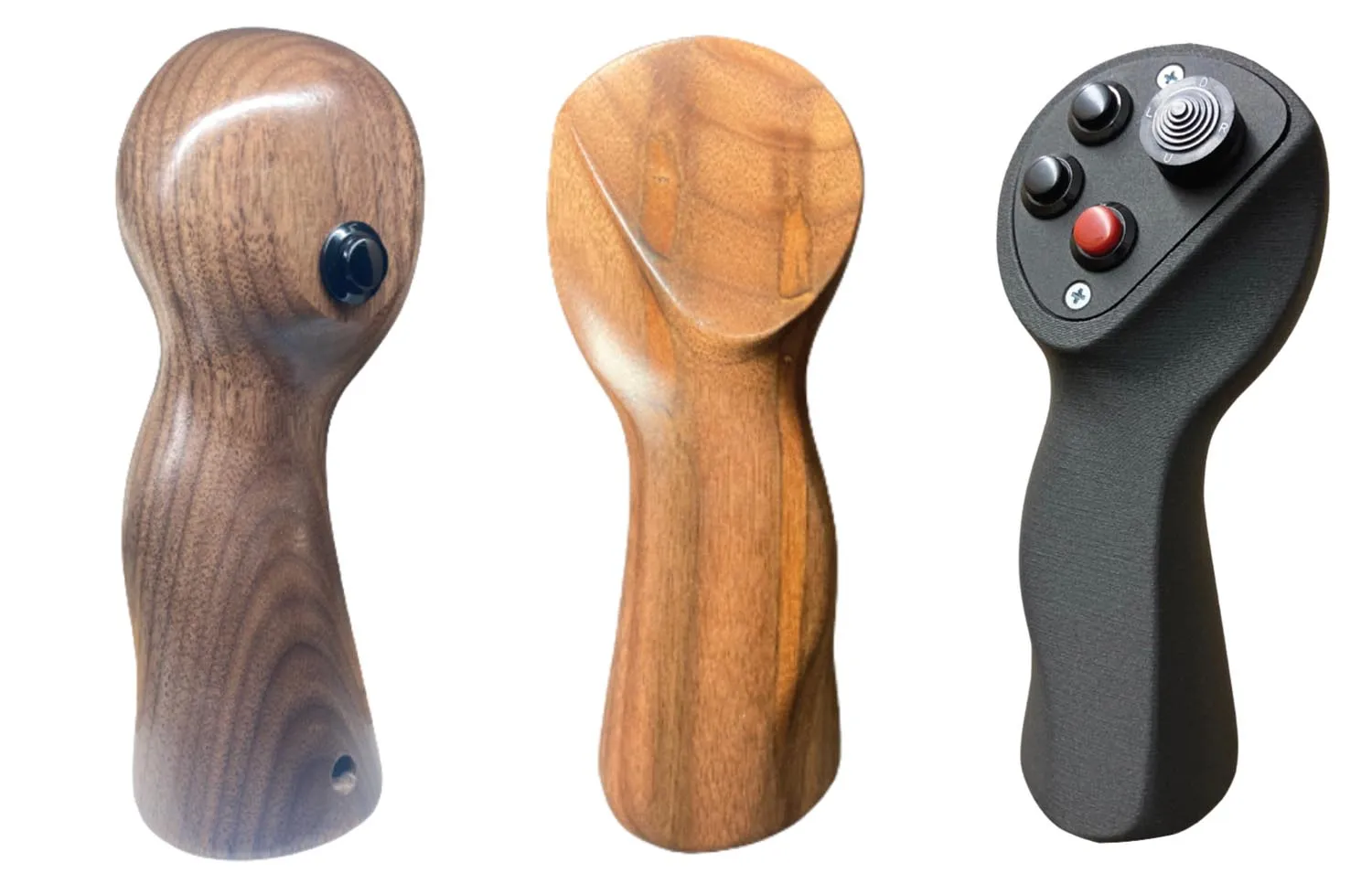
Skylar and Kelsey have been together since they were 12 and 13. They faced a lot of obstacles in their younger years, which only made their bond stronger and drove them to want better for themselves and their three children. I think it’s safe to say their hard work and willingness to take risks has paid off.
For more information, call 541-604-9573 or visit www.pioneercontrolgrips.com.
Watch the video below for a video tour of the PCG facility.
Photos: Ariana Rayment and courtesy of Pioneer Control Grips.
This article originally appeared in the April 2023 issue of KITPLANES.
For more great content like this, subscribe to KITPLANES!



































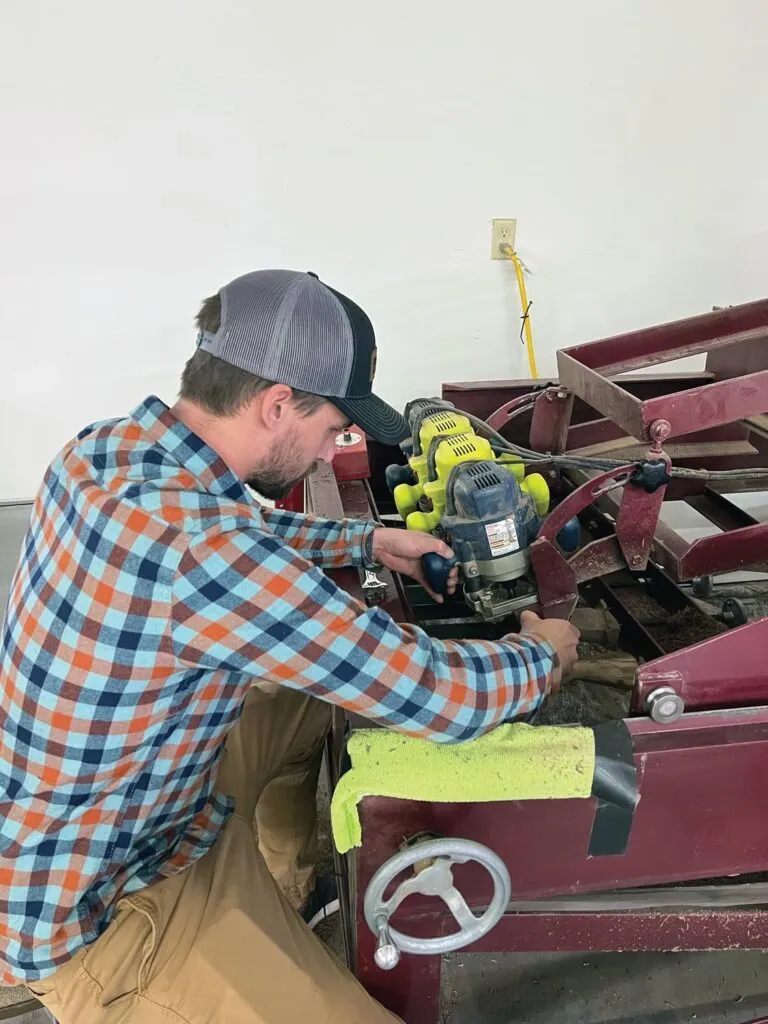

What an inspiring story, for multiple reasons.
Wow. Impressive… and as Malcolm said: Inspiring.